Resources
IISER Pune Biology Course Notes
This page contains relevant information about the notes compiled by Vasudha Kulkarni (Batch 2019-24). The notes are scanned versions of handwritten notes for mostly elective biology courses credited over 2nd year to 4th year at IISER Pune. The information regarding the year and instructors is given in the table below.
DISCLAIMER : The notes were made during or after class and certainly don’t claim to be complete or sufficient in any regard. I’m sharing my notes in the spirit of open science, and I hope they might be of some use to other people taking the same courses. Please ignore the occasional bad writing, grammatical errors, and frustrated comments in the margin. Sorry for some blurry pages or lines – you can contact me if you need it explained, but I’m not sure how much help I would be. Any mistake in the notes is entirely my fault, and not in any way a reflection on the instructors or the material I used. If you find serious mistakes, please reach out and correct me (but please be kind and constructive with your criticisms). I would also appreciate a message if you found them helpful. Lastly, I learnt more by making these notes, rather than studying them, so I’d encourage you to make your own notes and use mine as a backup.
- The folder currently contains 16 Biology, 1 HSS, 4 Earth and Climate Sciences, 4 Chemistry and 2 Transdisciplinary courses; which are all the courses (with good notes) I have credited so far.
- Few courses have an index in the beginning, where page numbers correspond to the page number written at the corner. For a few courses, I have also scanned the summary sheets at the end, as well as quizzes/assignments.
- Significantly incomplete notes: Ecology 2 and Animal Physiology 2 are somewhat incomplete - Ecology 2 doesn’t have all the notes from the assigned papers, and I missed quite a few of AP2 classes and suffered for the lack of recorded lectures. General Physical Chemistry notes are also incomplete towards the end. Evolution of Landscapes notes is incomplete in the middle, which covers modules on plate tectonics and the Himalayas, which were covered by Dr Ramendra Sahoo.
The PDF files are linked to the course names in the table below. If you have any questions or comments, please fill out this google form. Feel free to let me know which notes you found the most useful! ![]()
| Course Name | Semester | Instructors |
|---|---|---|
| Ecology and Evolution | Fall 2020 | Dey |
| Systems Biology | Fall 2020 | Assissi, Ghoshe |
| Cell Biology | Spring 2021 | Pucadyil, Balasubramaniam |
| Physiology | Spring 2021 | Matange, Subhedhar, Barua, Rath, Ghoshe |
| Genetics | Spring 2021 | Rikhy, Ratnaparkhi |
| Bioinformatics | Fall 2021 | Madhusudan |
| Neurobiology 1 | Fall 2021 | Subhedhar, Nadkarni, Nixon |
| Ecology 1 | Fall 2021 | Barua |
| Animal Physiology 1 | Spring 2022 | Subhedhar |
| Introductory Immunology | Spring 2022 | Rath, Bal |
| Animal Behaviour | Spring 2022 | Rajan |
| Mathematical and Computational Biology | Spring 2022 | Assisi |
| Ecology 2 | Spring 2022 | Barua |
| Disease and Discourse | Fall 2022 | Matange, Sancheti |
| Evolution | Spring 2022 | Dey |
| Animal Physiology 2 | Fall 2022 | Subhedhar |
| History of Political Thought in India | Spring 2023 | Redkar |
| Evolution of Life and Earth | Spring 2020 | Tripathi, Chattopadhyay |
| Introduction to Climate Science | Fall 2020 | Mani |
| Principles of Planetary Climate | Spring 2021 | Monteiro |
| Evolution of Landscapes | Spring 2021 | Banerjee |
| General Physical Chemistry | Spring 2020 | Hazra, Nag |
| Inorganic Chemistry | Fall 2020 | Vaidyanathan, Boomishankar |
| Organic Chemistry 2 | Fall 2020 | Chakrapani |
| Analytical Chemistry | Spring 2021 | Jayakannan |
| Thermodynamics | Spring 2021 | Musthafa, Choudhary |
| Data Analysis | Spring 2021 | Shekatkar (SPPU) |
Offering Feedback and Guidance
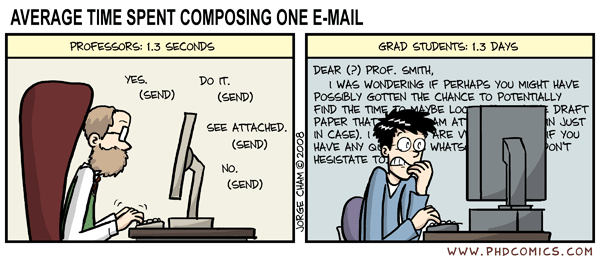
I would spend days drafting and editing emails to professors to inquire about research opportunities. I would often run it by my friends or seniors, and their feedback on my emails, CV, SOPs and presentations significantly improved my work. Their input helped me overcome trying to get the text ‘perfect’ and boosted my confidence in my writing abilities. Vishu Guttal’s advice on how to write emails to professors is also absolutely invaluable!
If you would like an extra pair of eyes on your writing or work, please feel free to reach out to me. I’d be happy to talk about my experience and give you my feedback (perhaps with a slight delay). But keep in mind that my qualifiations are just this: a PhD student, who went through PhD application process, and has some experience presenting at symposiums and conferences.
Additionally, if you’re travelling to Vienna (and Europe) for the first time, particularly if you’re a person from a marginalised background, I would be glad to help you navigate the city in the first few days - I can offer tips and help you settle in. Just send me an email a few days in advance.
PhD Application

Here are some useful resources that might help you with your own graduate school application -
- My statement of purpose for Rockefeller University (specific 3 part question), Princeton University (research statement and personal essay) and ISTA (standard 2-page SOP).
- Some blogs that talk in detail about the application process, from writing SOP and preparing the application to the interview and selection process -
- All about PhD applications by Lucy Lai (I heavily relied on this blog!)
- What I learned as a PhD application evaluator by Richard Gao
- PhD Application Guide by Ya’el Courtney
- Applying to STEM PhD programs by George Iskander.
- A shared Google Drive folder containing SOPs, CVs, and emails to professors collated by NYU psychology and neuroscience PhD students.
- Advice on how to reach out to professors you want to work with - So, you want to go to grad school? by Jacquelyn Gill.
- Your friends are not your competition! It really helps to have a buddy or a small group of people who are also going through the harrowing PhD application process – writing an SOP can make you feel like an imposter. So it’s good to have people who will give you feedback and keep you motivated as you go through it.
Research Project Organisation
Here are some ideas on how to organize a research project such that it’s searchable, accessible and backed up for (mostly) your future-self and your collaborators or colleagues. These are things that I have developed over the last few years and have worked well for me, but you might have different priorities or constraints. Let me know how you keep things organised!
-
Use a reference manager to collect and manage papers. I personally prefer Zotero, especially because of the Google Chrome extension that allows you to save papers directly from the web. I also use Foxit PDF reader to highlight text and make notes directly on the PDF file.
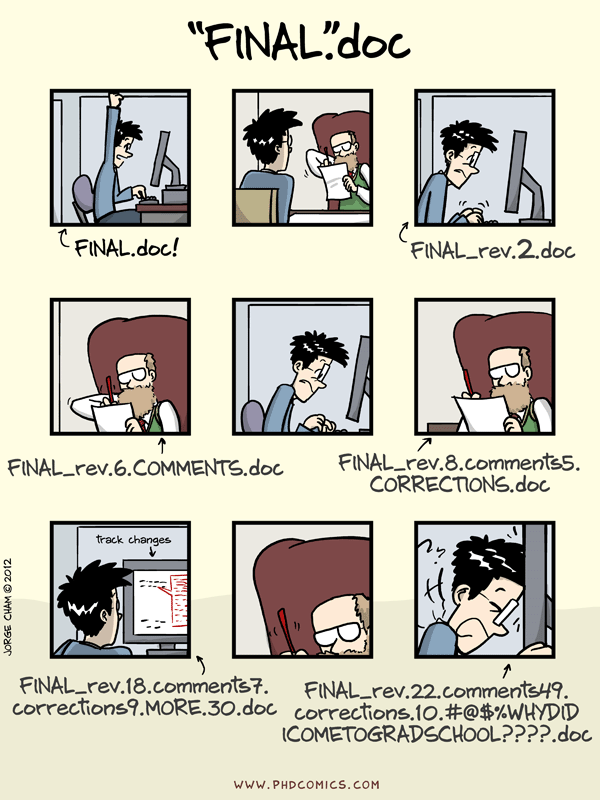
-
Make sure your notes are searchable and backed up. This applies to all notes such as, literature review, meeting notes, ideas file, experiment log and so on. I used to use Google Docs for note-taking because it also makes sharing easy, but I have switched to Obsidian, which stores all files locally and has a useful feature to connect files, visualise these connections and create your own wikipedia. The good old pen-and-paper really helps me think, and I use it to take notes during talks and meetings, but I ensure that I transfer the important points to my official notes folder.
TIP : Name all your files in the YYYYMMDD format (with underscores instead of spaces!) so you can find them easily. This also helps avoid naming files as ‘thesis-final’ and ‘thesis-final-2.0’. - Create Standard Operating Protocols (SOP) when you’re coming up with an experiment protocol or learning a new tool. For instance, during my master’s thesis, I learnt to configure (surprisingly error-prone) Raspberry Pi’s. I documented the steps and common errors along with their solutions in this note. Documenting my work this way helped me to already write up the methods of my work way before I started writing the thesis.
- Create a summary spreadsheet of your experiments. While most experimental labs insist on a physical lab notebook to document what went down during the experiment, I also find it very useful to create a spreadsheet with all the relevant details that can be accessed easily. For bigger projects, here is a relevant and handy article on data management skills for reproducible science by Kate Laskowski.
- Document and organise your code! This one seems trivial, but we often get lax about it. Comment and document your code for your future self. The Good Research Code Handbook by Patrick Mineault is an excellent guide on how to organise and document your code. It also has helpul advice on writing decoupled code and using unit tests to improve your code. I use Jupyter notebooks to analyse, simulate and visualise data, and store the functions in a separate .py file so the notebook doesn’t get too long. Here is a more concise Dynamic Ecology blog post by Brian McGill on best practices for big code.
-
Keep track of long-term and short-term goals. The credit for this goes to Dr. Raghav Rajan at IISER Pune, since I started implementing this based on his suggestion during my semester project in his lab. I do this by creating a document where -
- At the top, I write down the broad aim of the project, the expected results of the experiment and what it implies in terms of the bigger picture.
- In the next section, I write the broad stages of the project and then the smaller steps, within each stage as I do the work, to keep track of where the project is heading and all the things I attempted.
- To keep track of short-term, actionable goals - every Friday afternoon, before I log off, I make a list of all the work I did that week (including any important meetings, talks or conferences), the tasks to be done in the next week (crossing checklists is my favourite thing!), highlight any new conceptual ideas I had, and anything that was challenging that week (everything from a mental funk to frustratingly faulty equipment). This weekly update to myself keeps me on track and allows me to reflect on what I’m doing as I’m doing it.
- This can be combined with the actionable tasks from the meeting notes with your PI or collaborators.
I have created a starter folder for a new project if you want to see how I organise my data and code (it was heavily influenced by Prof. Chaitanya Gokhale’s starter folder). It’s an example of all the points I’ve described above.
Visualisation

Useful tools for scientific illustration
- Inkscape - A powerful, free design tool to create illustrations, draw figures and make posters.
- Biorender - Allows you to choose from lots of icons to put together illustration of experiments and scientific processes. The premium version can be used to make unlimited illustrations, posters and request certain icons.
- Phylopic - Free silhouette images of animals, plants, and other life forms, available for reuse under Creative Commons licenses.
- Bioicons - Free library of open source icons for scientific illustrations using vector graphics software such as Inkscape or Adobe Illustrator.
- Public Domain Review - It’s an online journal that curates compelling works of art and literature that have recently come into the public domain. It’s a good source of inspiration to search for interesting illustrations to accompany your articles.
- ColorBrewer - Color advice for cartography and plotting, can choose colors based on the type of dataset.
- Paletton - A tool for creating color combinations that work together well.
- The Python Graph Gallery - A collection of various types of graphs plotted using Python libraries. It also has a greate Python color palette finder!
- Pylustrator - It is a python-based software to prepare your figures for publication in a reproducible way. It offers an interactive interface to find the best way to present your data in a figure for publication.
- Friends don’t let friends make bad graphs - DOs and DONTs to making good plots.
Useful books on visualisation
- Fundamentals of Data Visualisation by Claus Wilke
- Visual Display of Quantitative Information by Edward Tufte (but watch out for the absurdity of data-to-ink ratio)
- Building Science Graphics by Jen Christiansen
- Visualising Complexity by Darjan Hil and Nicole Lachenmeier
If you’re interested in designing (or even exploring) creative and interactive websites, see some examples here
Teaching
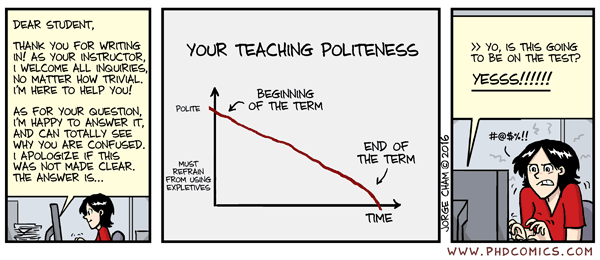
I was not a patient teacher (I think my sister switched to studying commerce because of my tutoring!), but TA’ing a course in graduate school made me realise that I enjoy some aspects of teaching - especially, designing lectures in such a way that it makes learning easy. I have a long way to go before I can claim to be a good instructor, but here are some resources that I found useful.
Books -
- The Chicago Guide to College Science Teaching by Terry McGlynn
- Entering Mentoring: A Seminar to Train a New Generation of Scientists by Jo Handelsman, Christine Pfund, Sarah Miller Lauffer and Christine Maidl Pribbenow
- Teaching and Mentoring Writers in the Sciences by Bethann Garramon Merkle and Stephen B. Heard
Blog posts -
- Efficient teaching: Getting metacognitive by Terry McGlynn (a synopsis of some points from his book mentioned above)
- The most important, and the most pointless, course I’ve taught by Raghuveer Parthsarathy
- The Quality Control Interview for Big Classes by Cosma Rohilla Shalizi
- AWOL from Academics by Aden Barton
On the use of generative AI while learning -
- Odysseus untying himself from the mast by David Deming
- GenAI in the classroom by Terry McGlynn
- What to do when students turn in assignments generated by AI? by Terry McGlynn
List of Lists
Metadata of compiled resources
- Resources and Advice for Students and Postdocs by Dr. Scott Keogh (Professor at Australian National University). It contains a list of useful resources and pages for PhD students on how to deal with a grad school life in general, writing papers, presenting your work, advice on getting an academic job and so on.
- Resources page by Dr. Vishu Guttal (Professor at the Indian Institute of Science). This page contains a great list of resources for professional and technical skills for academics, along with some funding/job opportunities specific to India.
- Advice for undergraduate and gradute students compiled by Shaily Bhat (PhD student at Carnegie Mellon University), who has her own list of lists!
- Resource page by Shikhara Bhat (PhD student at Johannes Gutenberg University). It’s a great compilation of interesting articles on theoretical biology, science book recommendations for aspiring evolutionary biologists, and resources for coding, data visualisation and presentation.
- Writing resources by Prof. Stephen B. Heard (Professor at University of New Brunswick). In addition to this collection of useful books, blogs and websites, Heard’s book A Scientist’s Guide to Writing is also an excellent writing resource.
- Tools for Science by Dr. Arjun Raj (Professor at University of Pennsylvania). Arjun Raj and his team have collected and curated a bunch of useful tools for academia - how to give a good talk, navigating your PhD, creating good figures and a lot more!
- Resources by IndiaBioScience. This page compiles resources for early career biology academics in India - from education and mental health to outreach grants and funding opportunities.
Useful tools I’ve used in my research

- Zotero - An open-source reference management software to organise and cite scientific literature. It has a lot of useful plugins, integrating it across platforms.
- Obsidian - A note taking app that stores files locally and allows you to connect notes, to create a wikipedia for yourself.
- Scite - A tool for discovering and evaluating related papers based on where the given paper was scited.
- Connected Papers - A website to discover the most relevant prior and derivative works of a paper, and visualise the knowledge landscape of a feild.
- DeepLabCut - A markerless pose estimation tool, based on transfer learning with deep neural networks. Works in laboratory conditions with a minimal training dataset.
- StereoCameraCalibrator - A MATLAB based tool to calibrate two cameras such that you can get 3D points from two sets of 2D points.
- LabelStudio - Open source data labelling platform to create training data or validate AI models.
- Fort-Studio - An API and graphical interface to facilitate access and analyzis of manage and visualize large Ant tracking datasets.
Miscellaneous
- Lessons in Statistical Thinking by Daniel Kaplan
- Against the uncritical adoption of ‘AI’ technologies in academia by Guest et al., 2025
- Using AI in Academia by Arjun Raj
Cheat Sheets
 |
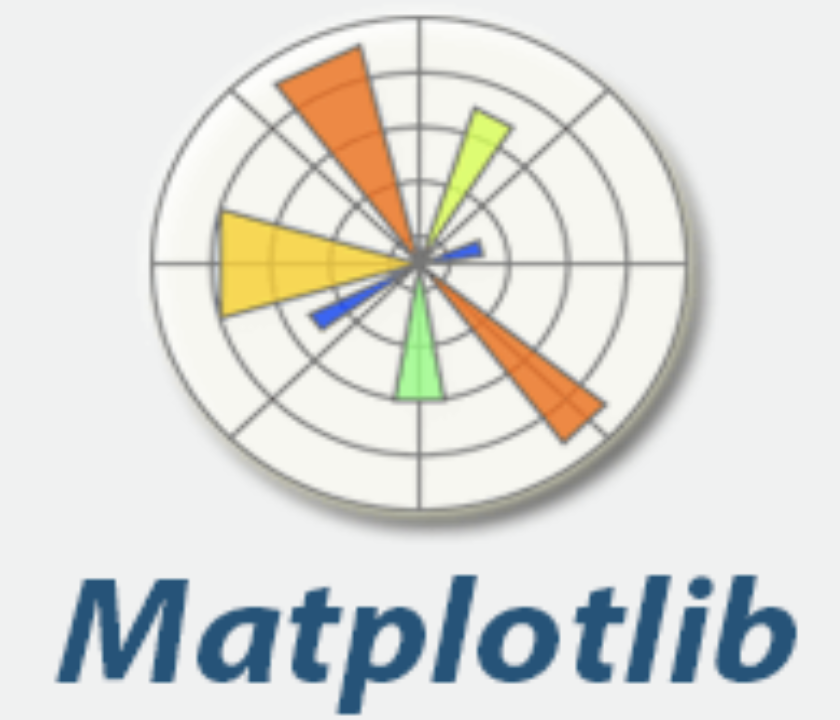 |
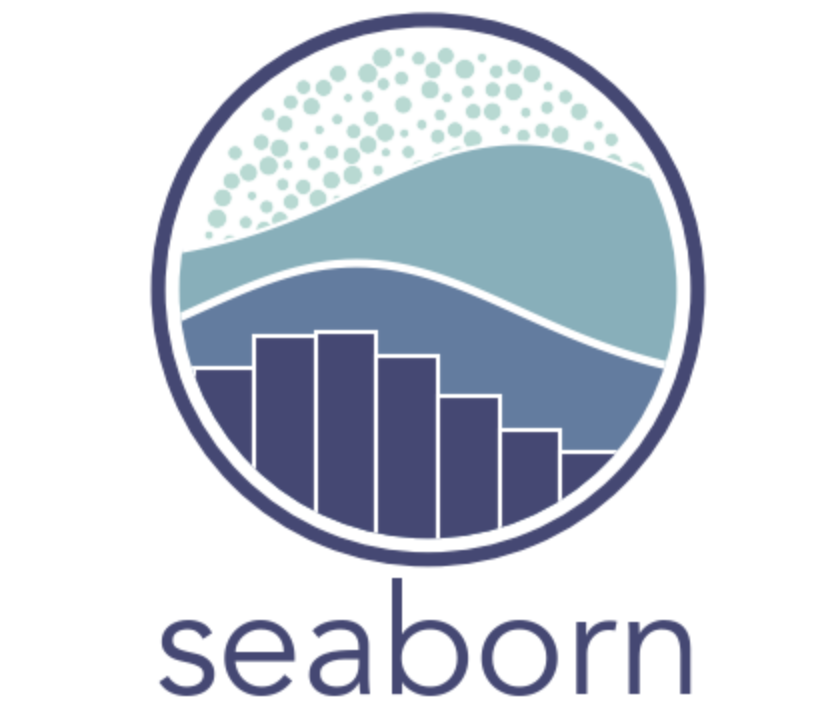 |
 |
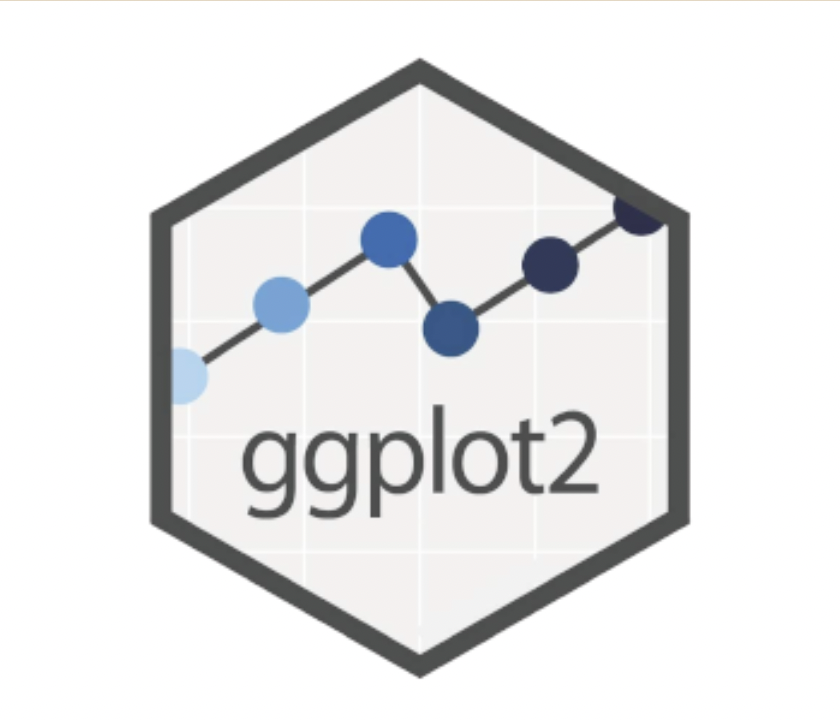 |
 |
 |
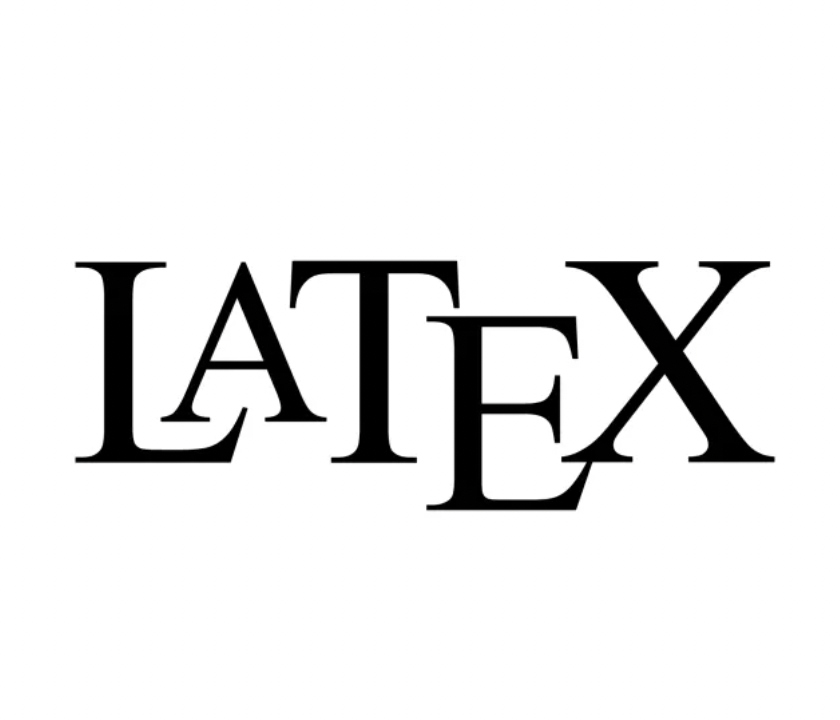 |
If you know of any cool resources for writing, reading, research, visualisation or anything else you think might interest me - do send it along!
The comics in this page have been borrowed from PhD Comics, created by Jorge Cham. It’s a comic strip about “life (or lack thereof) in academia”.